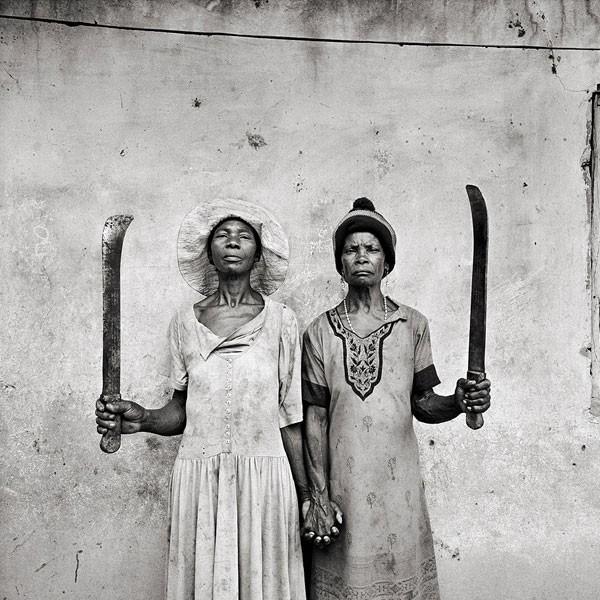E-payment for road traffic violation to fight corruption in Burkina Faso

Fight against corruption: introduction of e-payment in road traffic violation in Burkina Faso
We are certain that there is no country in the world that can boast of zero corruption. The reality is that certain areas seem to be safe havens, while others have a low prevalence of “underground or sophisticated corruption”. In the US, for instance, financial scandals abound. The media reports cases of famous companies and wealthy individuals who are involved in cases of gross corruption. A prominent political personality like Donald Trump is currently trying to fight his way out of corruption allegations and scandalous accusations in the US. In Europe, we frequently hear of financial, moral as well as political corruption, and the late Italian Prime Minister Silviano Berlusconi was trapped in this quagmire a couple of times. Corruption is very much a reality in Western or developed countries.
Developing countries in general, Africa, Asia, South America and Eastern Europe are labeled as the breeding grounds of corruption, with low ranking in the corruption index. Increasing restrictions on accountability measures and basic civil freedoms allow corruption to go unchecked. The Middle East and North Africa remain special cases because their weakness in terms of accountability and fairness lay in the fact that the interests of a powerful few continue to dominate the political and private sphere, and the limitations placed on civil and political freedoms are blocking all significant progress. In Sub-Saharan Africa, armed conflict, violent transitions of power and increasing terrorist threats combined with poor enforcement of anti-corruption commitments rob citizens of their basic rights and services.
Methods or tools (instruments) like Corruption Perceptions Index (CPI), Global Corruption Barometer (GCB)-Africa are frequently used to assess malpractices and I share some of the revelations. The CPI ranks 180 countries and territories around the world by their perceived levels of public sector corruption and the results are given on a scale of 0 (highly corrupt) to 100 (very clean). In 2022, the three least corrupt countries were found to be Denmark, Finland and New Zealand (each ranke 1) and Somalia, Syria and South Sudan were among the most corrupt ranking 178, 178 and 180, respectively, corroborating the general remarks made above. Global Corruption Barometer (GCB -Africa) concludes in its 10th edition (in 2019) with this note of hope, “most people in Africa believe that corruption is on the rise in their country but the majority remain convinced that, as individuals, they can make a difference in the fight against the flail”. This barometer also pinpoints the following institutions as the most corrupt in Africa, from the biggest culprit to the smallest: the police, government officials, magistrates/ judges, the office of the president and the prime minister, local government officials, and the least corrupt are NCOs and religious leaders. This tableau certainly presents little differences based on individual countries since this is a continental evaluation.
That notion of hope in the fight against corruption which is echoed by some African citizens is what is currently materializing in Burkina Faso (West Africa), a country which for a long time was seen as a corrupt one, especially during the rules of neocolonial and, debatably, democratic leaders. Fortunately, this trend is being reversed and it is said that Burkina Faso is trying to overcome a legacy of bad governance and corruption. Bribery and bureaucratic corruption were generally widespread, permeating all sectors of society and affecting the daily lives of the Burkinabè. The extractive industries sector, the judicial system and the public health sector were seen as the most vulnerable to corruption. An example of that anti-corruption policy lies in the recent implementation, on 13 July 2023, of the “econtravention platform”, an electronic payment mode of fines by citizens who violate traffic rules and regulations. The measure is the initiative of the current regime in power in Ouagadougou, precisely the Ministry in charge of Governance and National Security. Any road user breaking the traffic rules pays a fine into the accounts of the state, via electronic means – the citizen uses what is generally referred to as “mobile money” or “Orange Money” transfer (the “Orange Money” system is more common in French speaking West Africa) to pay the fine into the coffers of the state. No cash is handled by the traffic officer (the police in general). Previously, traffic control officers were considered to be among the most corrupt group as fines paid would find its way into the pockets of individuals. Traffic light violations represent the most pervasive contraventions in Burkina, so a fair way of handling the fines collected would provide a considerable amount of money for the national treasury.
The measure was adopted in order to curb corruption in that domain. Many see it to be a salutary move, which contributes to the digitalization of public administration, generates less corruption, helps citizens save time when they have to pay fines for traffic violations, and eradicates the phenomenon of “police stations with less available free space since most of the yard is occupied by a large number of bicycles, motorbikes, and cars seized from traffic violators who are yet to pay the penalty. But others are worried by the hindrances that the smooth running of the decision might encounter. First of all, if the fine to be paid by someone who violates a traffic regulation is 6,000 CFA (slightly over 10 USD), a road user could negotiate with the police officer and pay her 2,000 CFA or a third of the legal fine. That would be an agreement between the two persons, and corruption continues. So, pegging the fine with the income of the average citizen in mind is a sine qua non. So, the “econtravention” policy coupled with a higher fine might produce the opposite effect, which is more corruption and less money paid into the national coffers. The second apprehension stems from the digital literacy level of the general population, in a country where illiteracy is high. Not all citizens use electronic transactions, so they might not be able to effect payment. Other questions are: what shows that the fines that are paid go into the coffers of the state? How ready and willing are police officers to use the econtravention device or platform? The electronic network often malfunctions. How can payments be made in such cases? The initial temporary confiscation of the culprits’ means of transportation while they make arrangements for the payment of the penalty was to make them uncomfortable for some time. Now that they only have to pay and continue their way, will they be deterred enough?
But the general belief is that if Burkina Faso succeeds in making this innovative technique work, it will provide an example which will be emulated by many countries.
Moussa Traoré is Associate Professor at the Department of English of the University of Cape Coast, Ghana.







I think instead of paying directly to the police officers, it is better to install cameras on the roads and make all the citizens register their engines. In this case, it will be easier to apprehend someone who did not respect the traffic regulations. Otherwise, in Africa, it will be very challenging to deal with police corruption.
Good morning, Let me begin by saying that, if a fish will rot, it starts from the head.
It’s also a step in the right direction, on the part of Burkina faso. Using electronic system of payment of fines of road users who violate traffic? What about those who don’t use any means of transport in Burkina and yet might involve in corruption?
By what means will they also be fined?
On a more serious note, the corruption perception index in all the countries listed above can’t be satisfactory because whether electronic or manual there’ll still be clandestine acts by both ordinary citizens and the stakeholders ( both public and private).
Well, I equally wish Burkina Faso success in this, but in all sincerity, corruption can’t stop because public sector wages are nothing to write home about.
I see much of this canker hinged on the state organogram ( structures of government).
Take a cursory look at the ministry of finance in Burkina,the signing of contracts both domestic and foreign, and you’ll admi that,percentages are taken into individual pockets at the expense of the ordinary taxpayer.
The situation of this crusade in Burkina faso can’t be different from what is currently in Ghana.
You see, it’s not about the money the police collect that constitute the corruption,the reason is,the DPO who’s sitting in that office usually plan and direct the police at traffic what come back with by close of duty. Okay let’s take it the money goes straight to the government coffers,what happens when such money is to be used for development? Per centages are taken in signing contracts for the use of such funds. Is this a sort of corruption too?
I advise that, particular attention should be paid to the government at both the national and the district levels respectively.
As a Ghanaian,let me narrow down this corruption to my country Ghana.
You have a top government official meddled in serious corruption scandal and go unpunished. The arm of the law is protecting such class of individuals in the country.
The ordinary taxpayer sometimes attempts giving out something for fear of incaseration.
The judicial arm of government made it clear that both the giver and the receiver of bribe are all corrupt. So,the fines taken at the traffic as directed by the office of the presidency at Burkina faso should rethink and probably use a different dimension in dealing with corruption.
Still on Ghana’s corruption,the journalists are given incessant rukes and some even killed,in their quest to expose corruption in various sectors of the economy.
This is where I’ll side with Prof on the issue of torture metted out to journalists by government officials who try to expose corruption in Burkina.
In sum, corruption can stop in Burkina Faso not through digitalization but through attitudinal change.
……thank you…..
Sakara Mumuni
Incessant rebukes
Pardon my errors